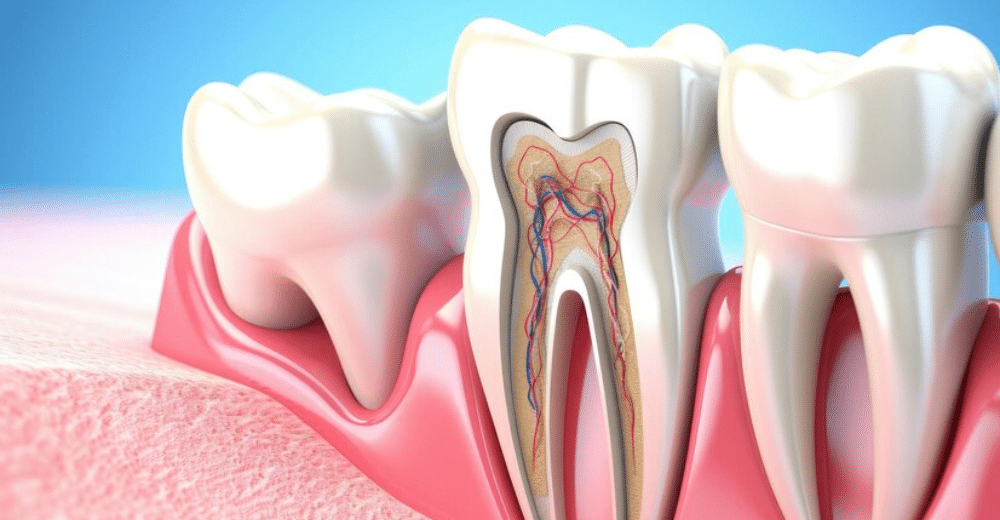Published on February 22, 2024

Root canal treatment is a common dental procedure that can save a severely damaged or infected tooth. While the benefits of this procedure are clear, many patients are concerned about the cost. Understanding the factors that influence the cost of root canal treatment can help you prepare financially and make informed decisions about your dental health.
Understanding The Importance of Root Canal Procedure
Root canal treatment, also known as endodontic therapy, is a procedure used to treat infected or damaged teeth. While many people may dread the thought of a root canal, the procedure is crucial for saving a tooth and preventing further oral health issues. Understanding the importance of root canal treatment can help alleviate fears and ensure that you receive the necessary care for your dental health.
Saves the Natural Tooth: One of the primary benefits of root canal treatment is that it allows you to save your natural tooth. Without treatment, an infected or damaged tooth may need to be extracted, which can lead to additional oral health issues and the need for replacement options such as dental implants or bridges. By preserving the natural tooth, root canal treatment helps maintain the integrity of your smile and jaw structure.
Relieves Pain and Discomfort: Infected or damaged teeth can cause severe pain and discomfort. Root canal treatment removes the infected or damaged tissue inside the tooth, alleviating pain and restoring oral health. Many patients experience immediate relief following a root canal procedure.
Prevents Spread of Infection: Untreated dental infections can spread to other areas of the mouth and body, leading to more serious health issues. Root canal treatment removes the source of the infection, preventing it from spreading and reducing the risk of complications.
Improves Oral Health: Root canal treatment is an essential part of maintaining good oral health. By removing infected or damaged tissue, the procedure helps prevent the development of abscesses, gum disease, and other oral health problems. It also allows you to chew and speak comfortably, promoting overall oral health and well-being.
Preserves Jawbone Structure: When a tooth is extracted, the jawbone may begin to deteriorate over time. This can affect the alignment of your teeth and the overall structure of your face. Root canal treatment preserves the natural tooth, helping maintain the integrity of the jawbone and facial structure.
Factors Influencing the Cost of Root Canal Procedures
Complexity of the Procedure
The cost of a root canal treatment can vary depending on the complexity of the procedure. A simple root canal on a front tooth may involve one root canal, while a molar with multiple roots may require more intricate treatment. The number of roots, the curvature of the roots, and the presence of any infection or abscess can all affect the complexity of the procedure and, consequently, the cost.
Location of the Tooth
The location of the tooth in the mouth can also impact the cost of the procedure. Teeth at the back of the mouth, such as molars, are typically more difficult to access and treat. This can require more time and specialized equipment, leading to higher costs compared to front teeth.
Dental Insurance Coverage
Your dental insurance coverage plays a significant role in determining the out-of-pocket cost of a root canal treatment. Some insurance plans may cover a portion of the cost, while others may cover it entirely. It’s essential to review your insurance policy and understand your coverage before undergoing treatment to avoid unexpected expenses.
Additional Treatments
In some cases, additional treatments may be necessary following a root canal. For example, a dental crown is often placed over the treated tooth to restore its strength and appearance. The cost of these additional treatments should be factored into the total cost of the root canal procedure.
Pre-Treatment Procedures
Before undergoing a root canal, your dentist may perform diagnostic procedures such as X-rays to assess the condition of the tooth and surrounding tissues. These pre-treatment procedures can add to the overall cost of the root canal treatment.
While the cost of root canal treatment can vary depending on several factors, it is important not to let cost deter you from seeking necessary dental care. Many dental practices offer financing options to help make treatment more affordable. By understanding the factors that influence the cost of root canal treatment, you can make informed decisions about your dental health and ensure that you receive the care you need.
Root Canal FAQs
Q: Why might I need a root canal treatment?
A: You might need a root canal treatment if you have a tooth that is severely decayed, infected, or damaged. Symptoms that indicate the need for a root canal include severe toothache, sensitivity to hot or cold, swelling or tenderness in the gums, and a recurring pimple on the gums.
Q: Is root canal treatment painful?
A: Contrary to popular belief, root canal treatment is not as painful as its reputation suggests. With modern techniques and anesthesia, most patients experience little to no discomfort during the procedure. After the treatment, you may experience some mild discomfort or soreness, which can be managed with over-the-counter pain medications.
Q: How long does a root canal treatment take?
A: The duration of a root canal treatment can vary depending on the complexity of the case. On average, a root canal treatment can be completed in one to two appointments, each lasting about 60 to 90 minutes. However, some cases may require additional appointments.
Q: How long does a root canal treatment last?
A: With proper care and maintenance, a tooth that has undergone root canal treatment can last a lifetime. It is essential to practice good oral hygiene, including regular brushing, flossing, and dental check-ups, to ensure the longevity of the treated tooth.
